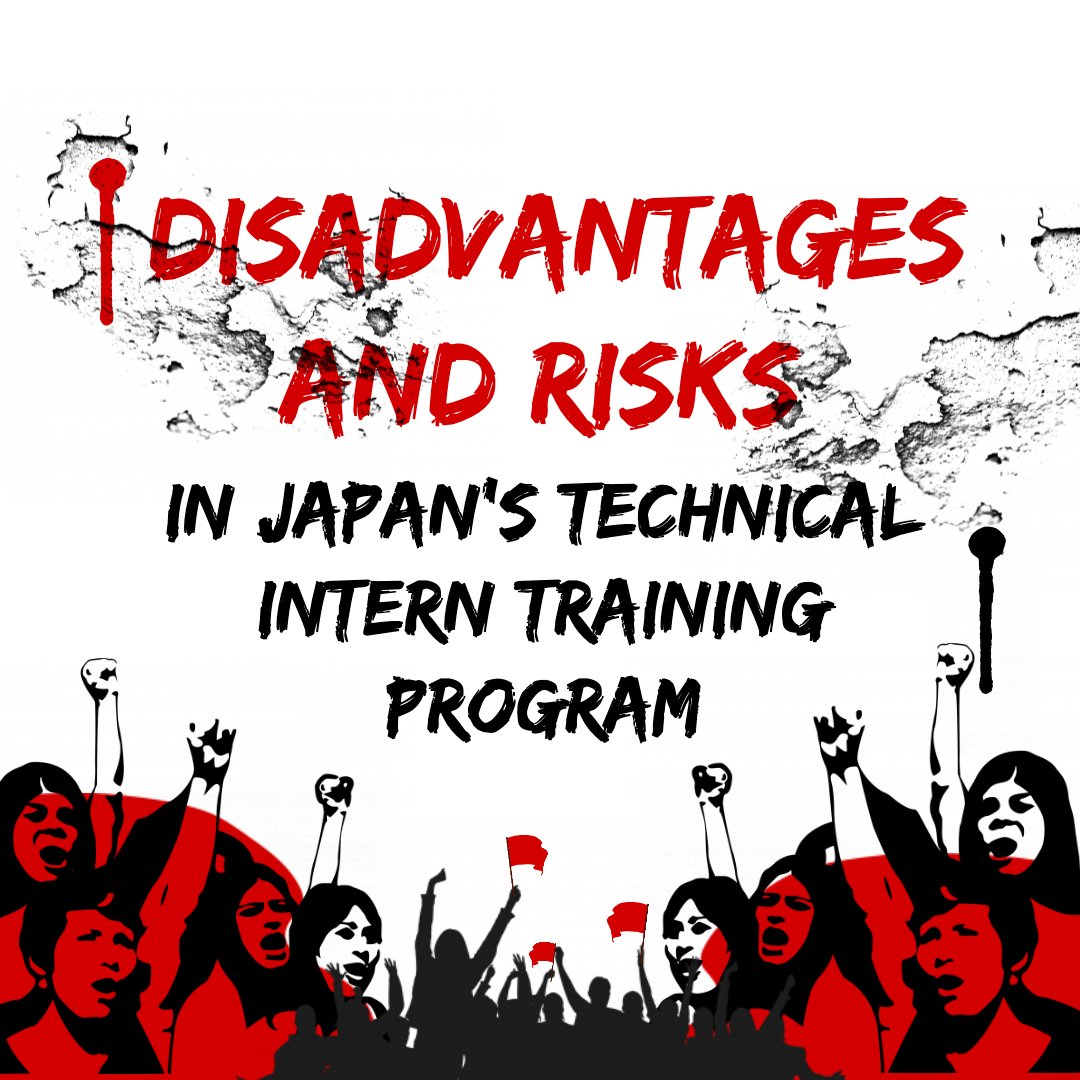公開日 2020年06月02日
更新日 2021年11月22日

Part III: Financial Penalties
Many of the Filipino trainees reported facing steep financial penalties imposed by Philippine agents and Japanese employers for various infractions, including leaving their TITP positions early.It came across several instances where trainees’ contracts contained restrictions of freedom of movement or expression that were accompanied by the option for levying a financial penalty in the event of a breach of contract.One of the trainee’s contract prevented her from participating in strikes, “leaving the premises of her implementing organization for more than three consecutive days,” and participating in “activities that are deemed political, religious, or have the capacity to cause international dispute.” “Damages” for failing to adhere to these conditions could amount to ¥750,000 (375,000 Pesos).Another trainee signed a contract agreeing to adopt a “controlled attitude” and “gentle approach” in dealing with her Japanese employer and supervising organization if “differences of opinion” arose. In the event of a dispute, if she failed to adhere to the instructions and requests by her recruitment agency’s representative in Japan, she would be subject to “damages” between ¥150,000-¥6000,000 (75,000-300,000 Pesos).
Withholding of Assets (Cash or Other); Withholding of Wages
Although JITCO explicitly prohibits “compulsory savings,”50 we found several reported cases in which Japanese employers, in coordination with the Philippine Agents, withheld wages from Filipino trainees, often for the ostensible purpose of helping them safeguard their earnings. This form of enforced savings Sometimes accounted for as much as 70 percent of trainees’ wages. Some trainees reported having their earnings automatically saved into a Japanese bank account controlled by their employer, which they could only access to check their account balances or withdraw money after filing requests with their employers.
True Story: Compulsory Savings
My friend spoke with a 35-year-old woman from the Philippines who came to Gifu Prefecture to work in a garment factory. She recounted that the head of her Manila-based recruitment company, known to her only as “Boss X,” visited her factory in Gifu once every three months to collect compulsory savings from her and two other Filipina trainees. Before a visit from the Philippine recruiter, her Japanese employer would collect roughly JPY 105,000 (52,000 Pesos) from each person, about 70 percent of what they earned in a month, and place the cash in envelopes for them to deliver personally to the head of the recruitment company. “Boss X” always came with a briefcase to collect the money. In total, he collected around JPY 1.14 million (570,000 Pesos ) from each trainee over the course of their three-year TITP term.“He told us he was safekeeping the wages for us and if we refused [to give him the wages], we would be sent back,” the woman explained. The Manila-based agency also informed them that if they quit their jobs, they would not be able to retrieve the wage earnings that were being held in “safekeeping” for them.
That’s all for now! See you at the next BLOG!
 0120-593-186
0120-593-186